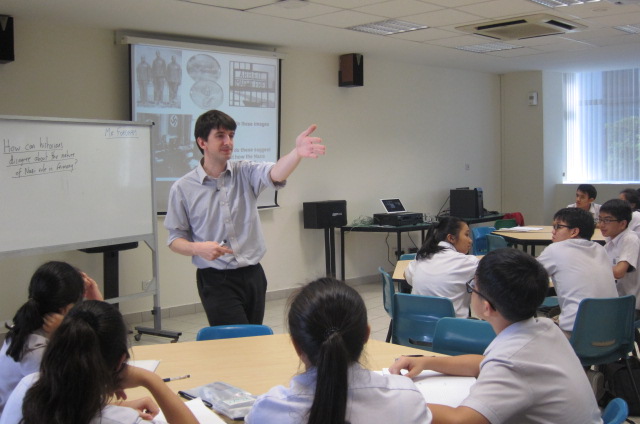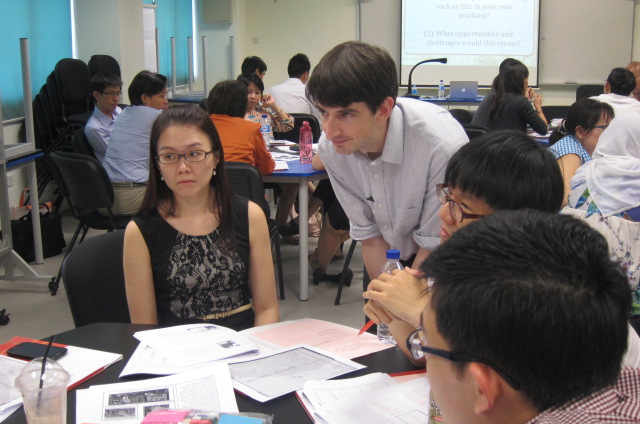Mr Michael Fordham (25 June to 9 July 2014)
Mr Michael Fordham (25 June to 9 July 2014)
AST’s 13th OEIR
Mr Michael Fordham is the 13th Outstanding Educator in Residence with AST. A Senior Teaching Associate at the University of Cambridge, Michael has published his professional and academic work widely in journals such as Midland History, Teaching History, Curriculum Supplement to Teaching History, Education Science and Master Class in History (2007–2013).
Michael held curriculum management positions in two comprehensive schools in England, and most recently as Head of History at Cottenham Village College, a Cambridge partnership school, where his department became the fourth in England to be used as a ‘good practice’ case study by the British schools inspectorate. Alongside his teaching work, Michael was also an A-Level examiner and moderator, particularly examining modern history exams on German and Russian twentieth-century history. He also sits on the education committee for the Royal Historical Society. He is involved in writing textbooks for the new wave of History GCSE exams that will be offered in the UK from 2016.
During his attachment, he conducted three Master Classes to help our educators understand the concept of accounts, and how it can be taught to History students. Michael modelled how to use authentic texts written by historians to help guide students in understanding how accounts are constructed. He had a chance to teach a history lesson to students at Clementi Town Secondary School, and he used video clips of this lesson to distil key learning points about how to unpack the concept of accounts for students. Michael also engaged participants in hands-on activities that helped them gain a deeper understanding of the use of historical scholarship. Through the activities and interaction, teachers were convinced that students can read more challenging works of history (versus abridged versions), and move beyond simplistic notions of how accounts are produced. The teachers also took away from the Master Class the understanding that reading good pieces of historical writing will result in an improvement in students’ written work.
Besides the Master Classes, Michael met with officers from the History Unit of the Curriculum Planning and Development Division (CPDD) and academics from the National Institute of Education (NIE), and discussed with them issues students faced when studying history. The discussions also focused on teacher professional development and how this was carried out in the Singapore and the UK contexts respectively. He also delivered a lecture on the importance of disciplinary knowledge at the Humanities Symposium jointly organised by the Singapore Chinese Girls’ School, AST and CPDD on 4 July. In addition, he visited three schools where he had the opportunity to observe lessons and have professional conversations with the Heads of Departments (HODs) and teachers. Finally, he also had a dialogue session with the HODs where they engaged in discussion on curriculum leadership.
Through the OEIR programme, Michael shared valuable learning insights from his perspective. He acknowledged that history teachers had many platforms for professional development and suggested that more time could be set aside to discuss historical concepts presented to students in the curriculum, the common misconceptions that students have of particular concepts, and what it means for students to gain greater mastery over these concepts. He also hoped that with a strong professional development network and a common curriculum framework, teachers in Singapore will develop their own body of professionally-created knowledge about the teaching and learning of history in the Singapore context.



